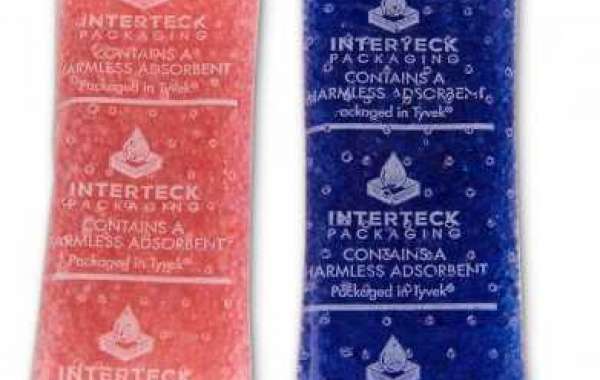Are you tired of finding your food items damp, stale, or even spoiled? The culprit behind these unpleasant experiences is often excess moisture, which can wreak havoc on the quality and longevity of various products. Fortunately, there's a solution to this problem: food moisture absorbers and humidity packs. In this article, we'll dive deep into these innovative products, uncovering their benefits, usage, and how they can revolutionize your approach to storage and preservation.
Table of Contents
- Introduction
- Understanding the Need for Moisture Control
- How Food Moisture Absorbers Work
- The Advantages of Using Moisture Absorbing Packets
- Applications of Humidity Packs Beyond Food
- Choosing the Right Moisture Absorber for Your Needs
- Proper Usage and Placement
- Long-Term Benefits on Product Shelf Life
- Eco-Friendly Packaging Solutions
- Innovations in Humidity Pack Technology
- Common Misconceptions About Moisture Absorbers
- Guidelines for Safe Handling
- Cost-Effectiveness and Savings
- Creating a Moisture-Resistant Environment
- Conclusion
Introduction
Whether you're a homeowner, a food manufacturer, or an outdoor enthusiast, dealing with moisture-related issues can be frustrating. Moisture not only compromises the texture and taste of food items but also contributes to the growth of mold, mildew, and bacteria. This is where food moisture absorbers and humidity packs come to the rescue.
Understanding the Need for Moisture Control
Moisture control is essential for preserving the quality of various products, especially in the food industry. Excess humidity can lead to clumping, spoilage, and degradation of items. This is particularly problematic for packaged goods that require prolonged shelf life.
How Food Moisture Absorbers Work
Food moisture absorbers contain moisture-absorbing agents like silica gel or clay minerals. These agents are designed to attract and trap moisture from the surrounding environment, effectively reducing humidity levels within the packaging.
The Advantages of Using Moisture Absorbing Packets
- Extended Shelf Life: By maintaining optimal moisture levels, these packets help extend the shelf life of food and other products.
- Preserved Freshness: Moisture-absorbing packets prevent staleness and maintain the original taste and texture of food items.
- Mold and Mildew Prevention: These packets inhibit the growth of mold, mildew, and bacteria, ensuring hygienic storage conditions.
- Reduced Oxidation: Controlled humidity levels reduce the risk of oxidation, which can affect the flavor and color of certain products.
Applications of Humidity Packs Beyond Food
Humidity packs are not limited to the food industry. They find applications in various sectors, including electronics, pharmaceuticals, and textiles. These packs help prevent moisture-related damage in sensitive equipment, medicines, and fabrics.
Choosing the Right Moisture Absorber for Your Needs
Different products require different levels of moisture control. It's crucial to choose a moisture absorber that aligns with your specific needs and the environment in which the items will be stored.
Proper Usage and Placement
Placing moisture absorbers correctly within packaging is essential. Proper placement ensures maximum effectiveness and prevents direct contact between the absorber and the product.
Long-Term Benefits on Product Shelf Life
The use of moisture absorbers can lead to significant increases in product shelf life. This is particularly advantageous for bulk purchases and long-term storage.
Eco-Friendly Packaging Solutions
Many moisture absorber packets are now designed with eco-friendly materials, supporting sustainability initiatives and reducing environmental impact.
Innovations in Humidity Pack Technology
Advancements in technology have led to the development of more efficient and compact moisture absorber solutions. These innovations continue to enhance their effectiveness.
Common Misconceptions About Moisture Absorbers
There are some misconceptions about moisture absorbers, such as assuming they are only for industrial use or that they are harmful if ingested. Clarifying these misconceptions is important for their widespread adoption.
Guidelines for Safe Handling
While moisture absorbers are safe to use, it's important to follow guidelines for proper handling and disposal, especially when dealing with products that may be accessed by children or pets.
Cost-Effectiveness and Savings
Investing in moisture absorbers can lead to long-term savings by preventing product spoilage and reducing the need for frequent replacements.
Creating a Moisture-Resistant Environment
Combining the use of moisture-absorbing packets with proper storage techniques can create a moisture-resistant environment that ensures product quality and longevity.
Conclusion
Food moisture absorbers and humidity packs offer a practical and efficient solution to the challenges posed by excess moisture. By extending shelf life, preserving freshness, and preventing mold growth, these innovative products have the potential to revolutionize the way we store and preserve various items. Whether in the food industry or beyond, moisture control is a crucial consideration for maintaining product quality.









